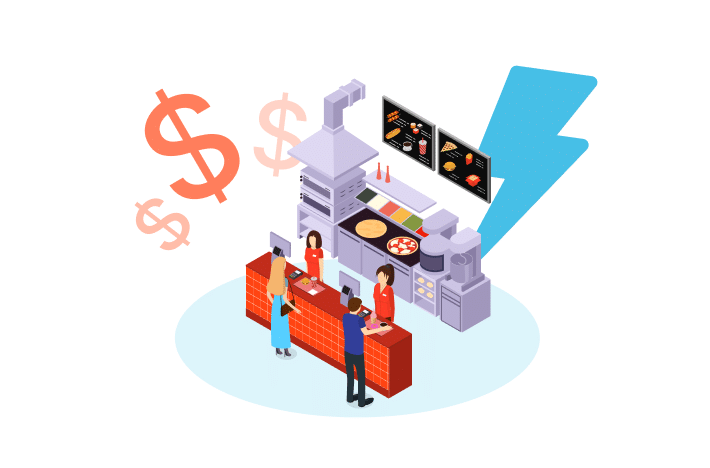Quick service restaurants (QSRs) in Australia are bracing for higher energy bills as of July, with electricity prices set to rise for small businesses, ranging from 0.8% to 8.5% depending on location and usage. This makes it more important than ever for QSRs to maximise their energy usage efficiency across their facilities.
Why are prices going up?
The Australian Energy Regulator (AER) recently released the Default Market Offer (DMO) for 2025-26. The DMO is essentially a way to protect consumers against ridiculously high prices while still allowing energy retailers to turn their own profit. It’s the absolute maximum price that can be charged to customers on standing offer contracts, and acts as a reference price for customers to compare plans. The DMO applies to small businesses on standing offer plans in NSW, South Australia, and south-east Queensland and the Victorian Essential Services Commission (ESC) has confirmed that the same hike will apply to the Victorian Default Offer.
What does it mean for QSRs?
This hike is set to add even more pressure to already tight financial margins. As QSRs generally rely on fast cash conversion cycles, when energy bills go up, cash flow can suffer. With QSRs having particularly high energy needs due to their refrigeration, cooking equipment and utilities, they are likely to feel the increase more than other businesses. This is highlighted by Austin Huntsdale, Chief Product Officer at Zembl who mentioned how “a QSR can use up to 10 times as much energy as a standard commercial office building.”
What can we do to keep energy costs down?
If you haven’t done an energy audit in a while, or have never done one, now is the time. Energy management can often become a blindspot as it’s difficult to understand which specific components are driving up your bills without regular audits. A thorough audit will help you discover exactly which equipment is operating inefficiently or where certain processes are consuming more energy than is necessary. After the audit you’ll get access to reports and recommendations that are tailored to your business and can help identify the best ways to reduce your total energy costs.
Preventive maintenance is an important practice to implement in order to keep costs low. Without regular preventive maintenance, problems with your equipment can go undetected until it’s too late – leaving you with the high costs of unexpected downtime and emergency repairs. Not only that, but equipment that isn’t kept in good condition can consume more energy over time. It’s not worth the risk – or the cost!
Another important practice is ensuring you operate modern, energy efficient equipment. While the outlay for such equipment can seem high initially, new equipment will enjoy higher uptime, reduced servicing costs and lower operating costs all of which can be a big saver in the long-run. To get a clear picture of your operating costs to help with repair/replace decisions it is critical to utilise an asset management platform that can provide complete cost transparency for your business.
Last but not least, your staff can play a big role in saving on energy bills. Implementing processes like powering down equipment when not in use, or switching off lights overnight can all help make a difference over the course of a year.
To wrap up
Yes, electricity prices are about to jump up for many QSRs across Australia which could mean tightening your budget even further. But taking simple actions like an energy audit, preventative maintenance, and educating staff, can help minimise the impact in the long run. So don’t be discouraged by the new pricing – there are ways to keep costs down and keep your QSR profitable in the 25/26 financial year.
